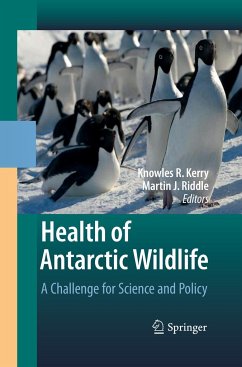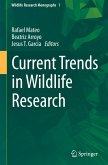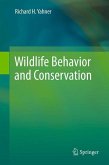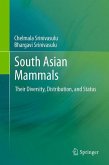comprehensively up to date. We are most grateful to these authors and to those we recruited to write the additional chapters necessary to fill the significant gaps. We acknowledge also the sacrifice of some who presented results of original research and have thus suffered a longer time than usual to publication. The timing of publication however has provided the opportunity to highlight recent discussions and resolutions made within the Antarctic Treaty forum to protect wildlife against disease and to include responses by Government and non-Government operators in Antarctica. These developments mostly followed from the Workshop on Diseases of Antarctic Wildlife. The book comprises 17 chapters presented in two parts. Wildlife disease consists of reviews, case studies and health assessments, and External factors covers the environmental, administrative and legal aspects. Each chapter is complete and c- tains all references. Six important documents are provided as Appendices. These present methods, reviews and other documents which are referred to in one or more chapters but are not readily available. There are many related topics we have been unable to cover that would enhance the understanding of health and disease processes in Antarctica. While we ackno- edge their importance they are outside the scope of the present volume. Such topics include epidemiology, new and emerging infectious diseases and the effects of climate change. These topics are referred to in the various chapters where ref- ences to source material are given.
From the reviews:
"The present one is to be greatly welcomed as fills an important gap in the knowledge of Antarctica. Health of Antarctic Wildlife is a volume with a wide scope ... discusses this topic in the context of the complex policy and administration systems for the Antarctic continent. ... The book will be very useful for all those interested in the environmental protection of Antarctica and specifically of its fauna. It provides a good starting point for researchers, managers or policy-makers involved in Antarctic work." (Andres Barbosa, Antarctic Science, Vol. 22 (3), 2010)
"This book and its many contributors-28 in all-provide an up-to-date overview of the health of Antarctic birds and seals. For any practising biologist, ecologist or veterinarian interested in Antarctic biology this book is immensely valuable, not only because it brings together information from a wide range of fields and expertise, but ... it describes exactly how suspicious die-offs should be treated to minimize the potential spread of disease, and to reduce the risk to the human researchers most likely to discover such events." (Clive R. McMahon, Polar Research, Vol. 29 (3), 2010)
"This book provides a useful and interesting introduction to the health and related issues of Antarctica's seabirds and seals. ... This volume set out to provide an up-to-date overview for a broad audience. ... this book does not disappoint and offers a comprehensive primer and source of reference for both scientists and policy advisers ... . It brings together a comprehensive set of contributions and an important bibliography that I for one, will consult well into the future." (P. Tratham, The Journal of Polar Record, Vol. 47, 2011)
"'To provide information in a consolidated form to the Antarctic Treaty Parties who, through domestic legislation and regulation, are responsible for implementing the environmental protection regime in Antarctica.Further the book is intended for use by veterinary and biological scientists, policy makers and administrators whose job it is to protect the health of Antarctica's wildlife.' ... a highly welcome solid base for further investigation and for further developments in policy. ... it is clearly addressed to professional readers and institutional libraries." (Horst Bornemann, Polar Biology, Vol. 34, 2011)
"The present one is to be greatly welcomed as fills an important gap in the knowledge of Antarctica. Health of Antarctic Wildlife is a volume with a wide scope ... discusses this topic in the context of the complex policy and administration systems for the Antarctic continent. ... The book will be very useful for all those interested in the environmental protection of Antarctica and specifically of its fauna. It provides a good starting point for researchers, managers or policy-makers involved in Antarctic work." (Andres Barbosa, Antarctic Science, Vol. 22 (3), 2010)
"This book and its many contributors-28 in all-provide an up-to-date overview of the health of Antarctic birds and seals. For any practising biologist, ecologist or veterinarian interested in Antarctic biology this book is immensely valuable, not only because it brings together information from a wide range of fields and expertise, but ... it describes exactly how suspicious die-offs should be treated to minimize the potential spread of disease, and to reduce the risk to the human researchers most likely to discover such events." (Clive R. McMahon, Polar Research, Vol. 29 (3), 2010)
"This book provides a useful and interesting introduction to the health and related issues of Antarctica's seabirds and seals. ... This volume set out to provide an up-to-date overview for a broad audience. ... this book does not disappoint and offers a comprehensive primer and source of reference for both scientists and policy advisers ... . It brings together a comprehensive set of contributions and an important bibliography that I for one, will consult well into the future." (P. Tratham, The Journal of Polar Record, Vol. 47, 2011)
"'To provide information in a consolidated form to the Antarctic Treaty Parties who, through domestic legislation and regulation, are responsible for implementing the environmental protection regime in Antarctica.Further the book is intended for use by veterinary and biological scientists, policy makers and administrators whose job it is to protect the health of Antarctica's wildlife.' ... a highly welcome solid base for further investigation and for further developments in policy. ... it is clearly addressed to professional readers and institutional libraries." (Horst Bornemann, Polar Biology, Vol. 34, 2011)








